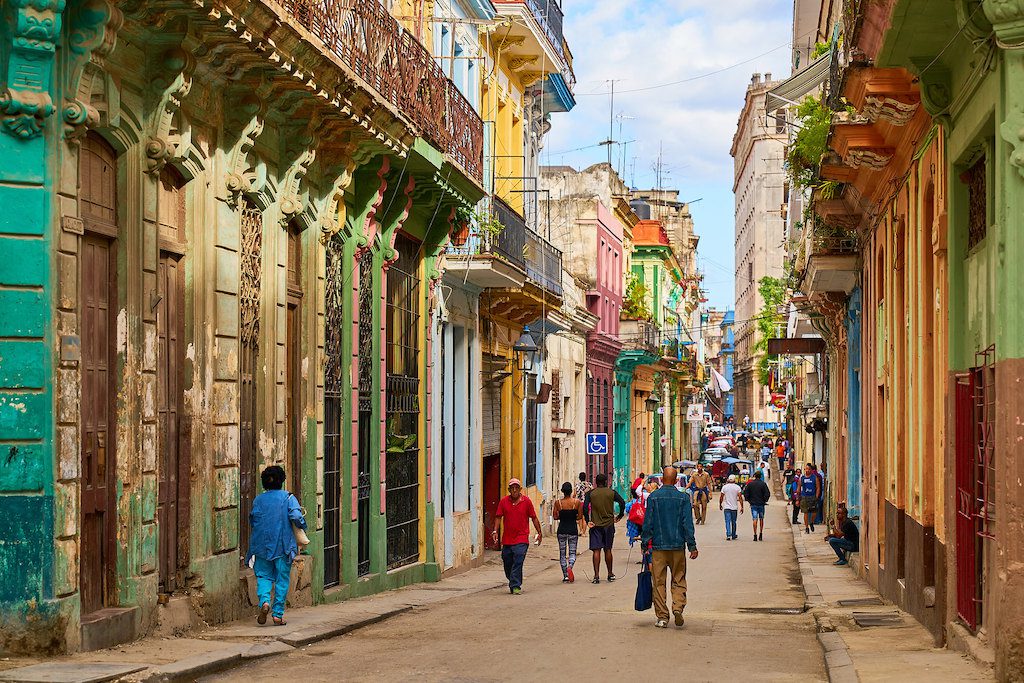Skift Take
President Trump hasn't scrapped legal U.S. travel to Cuba entirely, but the drip drip of policies making it seem more difficult or complex will mean some travelers stay away. One travel company wants to make it easier.
It’s still legal for American citizens to travel to Cuba. Understanding just how to do so, however, has become increasingly complicated since the Trump administration began tightening restrictions on travel and trade with the country in 2017.
The most recent of these restrictions came in late October, when Trump banned U.S. carriers from flying into Cuban airports other than Havana. As Skift reported previously, the move is largely a symbolic one that came in response to Cuba’s support for Nicolas Maduro in Venezuela. However, it still results in just the sort of headlines which cause confusion for U.S. travelers mulling a trip to Cuba. That’s a problem that tour company InsightCuba is trying to address with a new promotional campaign.
InsightCuba is a nearly 20-year-old company that has been on the vanguard of providing legal travel to Cuba for Americans even before Presidents Barack Obama and Raul Castro began improving relations in 2014. In response to all the confusion, the company is rolling out a seemingly too good to be true campaign: Travelers who book a small group tour with the company will get their airfare from Miami included at no extra charge.
“Every time the administration does a change, it’s just confusing the market; [travelers] will just go ‘I don’t get it,'” company president Tom Popper said. “The bulk of the U.S. travel market has yet to visit Cuba, they are just still becoming aware.”
So how is it economically viable for a tour company to offer free flights as part of its package? Popper says that when travel to Cuba first opened up during the Obama years, prices soared — for example, “a taxi that was $4-6 dollars went up to $13” — but as prices have gone down over time, the company has been able to renegotiate its contracts with Cuban vendors, making the offer financially viable for the longtime tour operator.
“Many Americans don’t even realize that you can fly to Cuba directly,” Popper said, referring to when commercial air travel restarted after a more than 50 year hiatus in 2016. “There’s still commercial air but you can’t just go on Expedia and book your air travel. You have to figure out which carrier goes, and book directly with them. So with the savings we were able to negotiate we said ‘let’s do something and make it simpler.'”
Many U.S. travelers heading to Cuba now do so on the Treasury Department’s “support for the Cuban people” category of approved travel, which Popper says more or less replaced the former “people to people” category which the Obama administration had opened up to individuals. Both are intended to prevent tourist trips that are simply lying on the beach drinking cocktails at a luxury hotel, and instead foster interaction with the Cuban people. (This is in the U.S. interest, Popper notes, because it is supposed to expose Cubans to American capitalism and way of life.) President Obama also made it so that the arduous process to obtain these licenses was no longer necessary; as long as travel fit the description of one of the outlined categories, it was allowed.
That is still the case, but in June, Trump unexpectedly scrapped the people to people provision. The move had the most dramatic effect for cruise lines, which used it to cover its American passengers’ port visits. That affected earnings for some major cruise lines, who had quickly built up popular itineraries in Cuba since the Obama administration’s changes.
The Cuban Ministry of Tourism did not respond to questions from Skift about how these policies have affected their arrival numbers from U.S. travelers. But it’s quite clear what the intent of these policies are. As a Nov. 1 letter from 11 U.S. senators addressed to Secretary of State Mike Pompeo said: “while Administration officials have claimed to be on the side of the Cuban people, officials have also estimated that the Administration’s travel restrictions will reduce the number of American visitors to Cuba by more than half, which is already having devastating consequences for Cuban entrepreneurs.”
The travel analytics firm Forward Keys projected that bookings to Cuba from November through the end of January are up 1 percent year on year, but that includes global bookings, not just U.S. travelers.
Popper noted that, somewhat ironically, leads and interest in his company have increased threefold since the administration announced its most recent restriction in October. The company plans to run the free flights campaign at least until the end of 2019.
He understandably wants people to know that “it’s still easier for Americans to travel to Cuba legally than it was before the detente of Obama and Castro.”
The Daily Newsletter
Our daily coverage of the global travel industry. Written by editors and analysts from across Skift’s brands.
Have a confidential tip for Skift? Get in touch
Tags: cruise, cuba, tourism, Trump Administration
Photo credit: A street in Havana, Cuba. Pedro Szekely / Flickr
